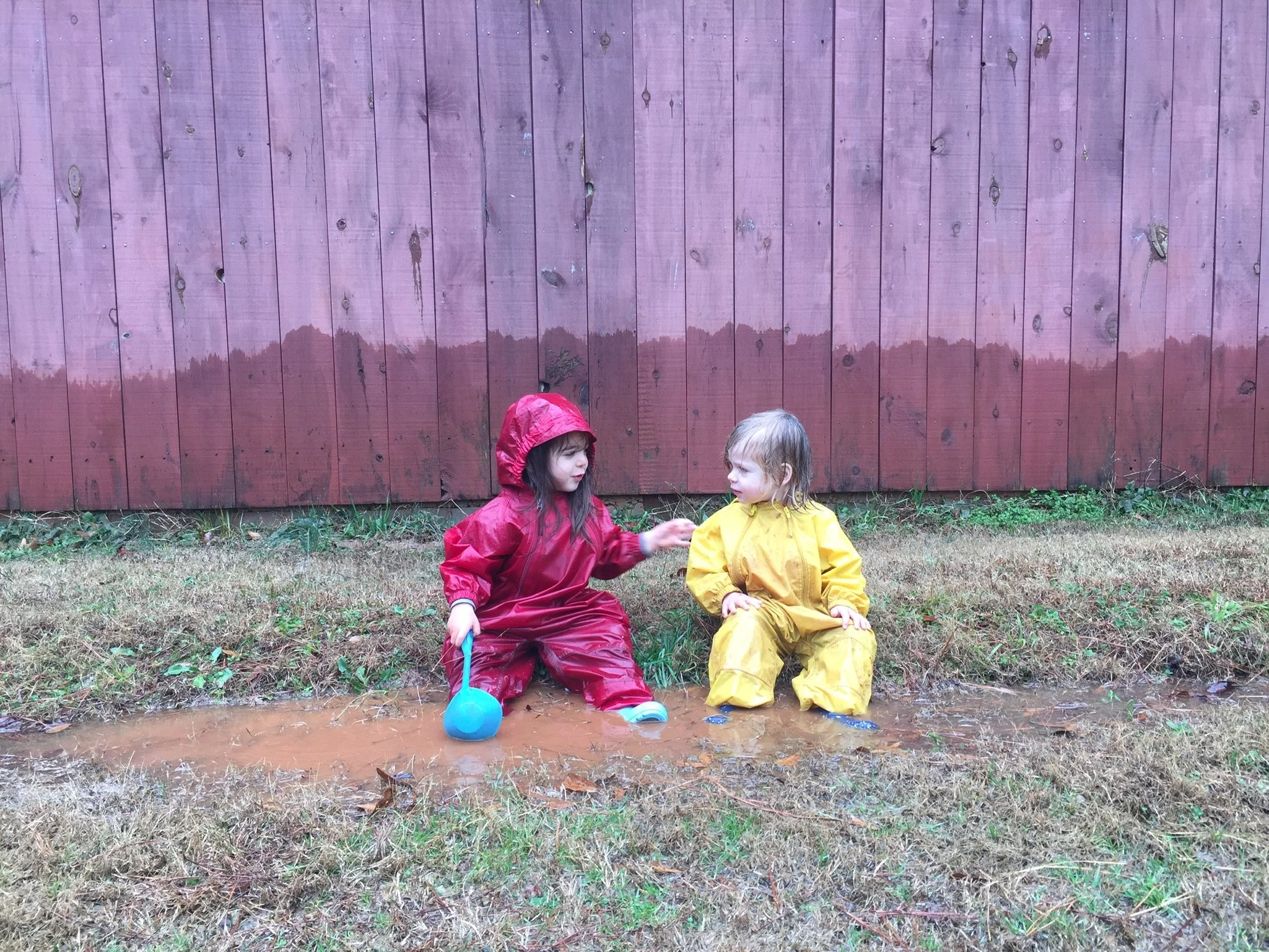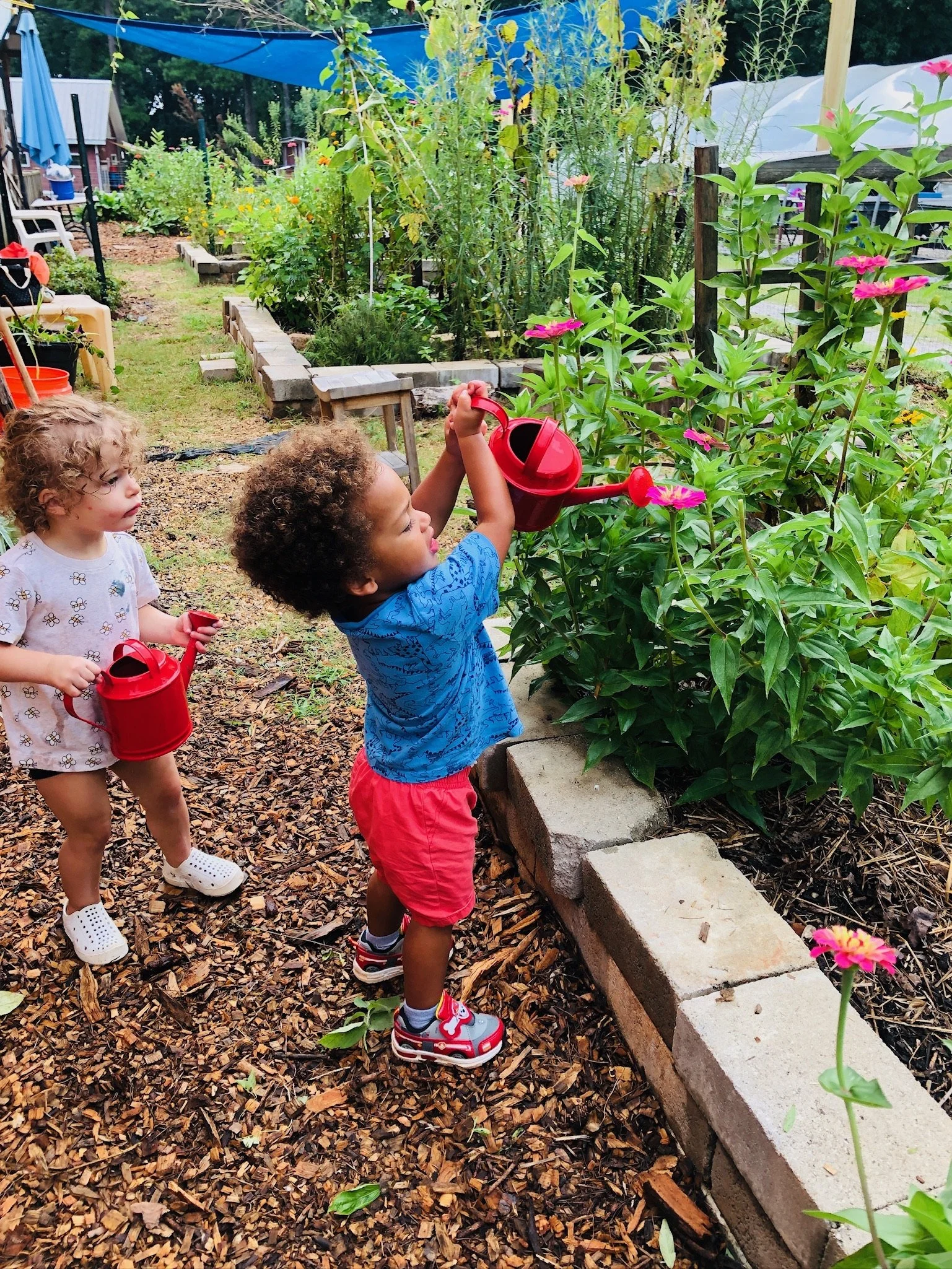
Classes
We take a whole-child approach to early childhood education, with nature-based play at the center of our emergent curriculum. Through this process, we tailor our activities and projects to the interests, needs, and skills of our children.
Classes
Children learn and play throughout our campus, and each group has an outdoor classroom that serves as its home-base. Across each class the primary focus and goal is to provide children with tasks, opportunities, and spaces for age-appropriate independence.
Our classes intentionally have a mix of ages, allowing children to learn from one another, develop awareness and empathy, and build confidence as they practice being responsible leaders to younger friends.
-

El Campo Verde
Ages 2-3.5
This group meets in the shaded meadow at the edge of the woods. It is fully fenced and has grass and sand areas, as well as a mud kitchen, swings, climbing structure, and a shaded area with tables for eating, working, and playing.
-

La Casita
Ages 2.5-4.5
Also known as the “goat shed” class for its rustic central shelter, La Casita is located at the opening of the campus’s woods. It has both open and enclosed areas featuring a sandbox, play kitchen, climbing elements, circle time benches, swings, hammock and picnic tables.
-

El Bosque
Ages 3.5-5
El Bosque, or the unfenced “forest” class, is our most open classroom and is located furthest into our campus woods. A circle of benches surrounds a central fire pit, and shaded climbing structures, a zip line, and swings are spread throughout the area.
Gross motor: hiking, running, climbing, swinging
Fine motor: picking, stirring, painting, cutting foods
Social: circle time, group hikes, cooking, free play
Emotional: imaginative play, storytelling, nature observation, circle time
Cognitive/literacy/numeracy: collecting, labeling, observation, storytelling, singing, pattern recognition, cause/effect in nature
Development & Skills
Nature is the ideal classroom, providing endless opportunities for skill acquisition and the development of the whole child.
Health and Personal Awareness: physical movement, daily rhythms, overcoming obstacles, self-awareness, personal challenge, ownership and independence
Sensory Development: water play, digging, free exploration, smelling plants, cooking, artmaking, observant listening, weather experiences, and music
Spatial Awareness: nature walks, movement, balancing, natural forest environment and relationship to its elements
Garden Time
While our partner organizations run the organic farm on our campus, Language Garden has its own dedicated garden classroom where we grow a variety of flowers and vegetables. The children participate in all aspects of gardening—moving dirt, planting seeds, weeding, watering, and harvesting.
The garden is a place for focused observation and participation in nature’s big and small seasonal changes and cycles. It is a place for sensory play, collaboration, songs, and stories. We eat from the garden, making recipes and tea with ingredients we have grown.
Spanish Integration
Each class has a dedicated Spanish teacher who integrates task-based language learning throughout the day. They collaborate with lead teachers both to repeat and to lead class routines, instructions, questions, songs, and play interactions in Spanish.
They also engage with small groups of children for fully focused Spanish immersion. During these weekly rotations, children have the opportunity to experience and learn Spanish through thematic projects, artmaking, walks, stories, and songs. Our teachers not only use oral instruction but also help students develop language skills through full-body kinesthetic learning.




